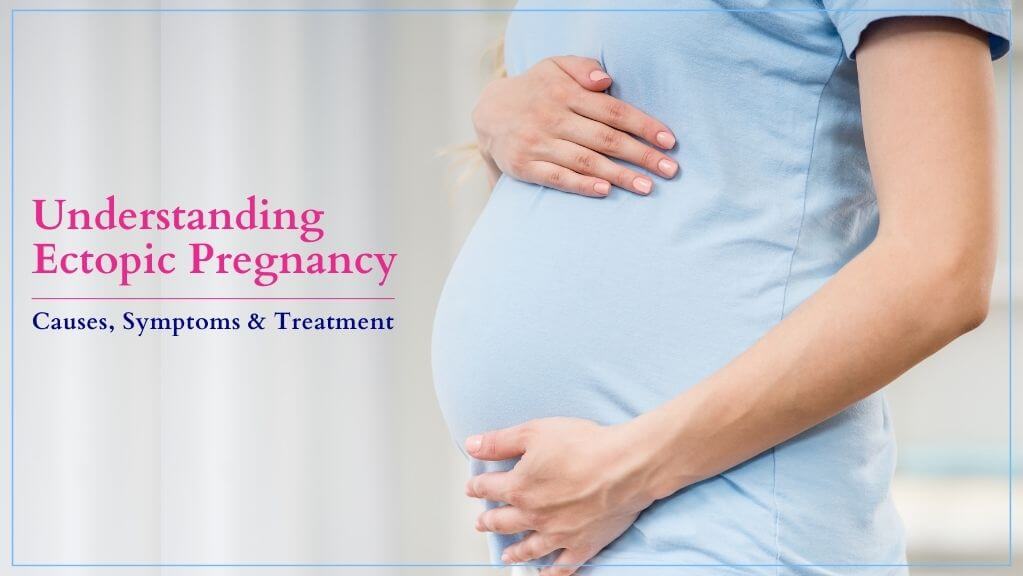
Ectopic pregnancy is a potentially life-threatening condition that occurs when a fertilized egg implants and grows outside the uterus, usually in the fallopian tube. This abnormal implantation prevents the embryo from developing properly and can lead to serious complications if not treated promptly. In this article with Gaudium IVF, the Best IVF Center in Mumbai, we will delve into the causes, symptoms, diagnosis, and treatment options for ectopic pregnancy.
Ectopic Pregnancy Causes:
The exact cause of ectopic pregnancy is not always clear, but several factors may increase the risk:
Previous Ectopic Pregnancy:
Women who have had an ectopic pregnancy in the past are at a higher risk of experiencing it again.
Fallopian Tube Issues:
Damage or inflammation of the fallopian tubes, often due to pelvic inflammatory disease (PID) or previous surgeries, can disrupt the normal passage of the fertilized egg.
Hormonal factors:
Certain hormonal imbalances or abnormalities can affect the movement of the fertilized egg through the fallopian tube, increasing the likelihood of ectopic implantation.
4. Other Reproductive issues:
Conditions such as endometriosis, Sexually Transmitted Diseases, and Congenital abnormalities of the reproductive organs can contribute to ectopic pregnancy.
Symptoms of Ectopic Pregnancy:
Ectopic pregnancy symptoms can vary in severity and may mimic those of a normal pregnancy or other gynecological conditions. Common symptoms include:
1. Abdominal or pelvic pain:
This may range from mild discomfort to severe, sharp pain, often localized on one side of the abdomen.
2. Vaginal bleeding:
Light spotting or heavy bleeding, which may be accompanied by clotting, can occur.
3. Shoulder pain:
In some cases, the pain from a ruptured ectopic pregnancy can radiate to the shoulder area.
4. Nausea and Vomiting:
These symptoms may occur, similar to morning sickness in a normal pregnancy.
5. Weakness, Dizziness, or Fainting:
Internal bleeding from a ruptured ectopic pregnancy can lead to these symptoms, indicating a medical emergency.
Ectopic Pregnancy Diagnosis:
Early diagnosis of ectopic pregnancy is crucial for preventing complications. The best infertility specialist in Mumbai can use a combination of medical history, physical examination, and diagnostic tests to confirm the diagnosis:
1. Pelvic Exam:
A doctor may perform a pelvic exam to check for signs of tenderness, swelling, or abnormal masses in the pelvic area.
2. Blood Tests:
A blood test measuring levels of the hormone human chorionic gonadotropin (hCG) can help confirm pregnancy and monitor its progression. In ectopic pregnancy, hCG levels may rise more slowly than expected.
3. Ultrasound:
Transvaginal ultrasound imaging allows the doctor to visualize the uterus and fallopian tubes and detect the presence of an ectopic pregnancy or signs of internal bleeding.
Treatment of Ectopic Pregnancy:
The treatment approach for ectopic pregnancy depends on several factors, including the stage of pregnancy, the presence of symptoms, and the woman’s overall health.
Options include:
1. Medication:
Methotrexate, a medication that stops the growth of rapidly dividing cells, may be prescribed to dissolve the ectopic pregnancy in its early stages. This option is typically reserved for cases where the ectopic pregnancy is small, the fallopian tube is intact, and there is no active bleeding.
2. Surgery:
In cases where the ectopic pregnancy is advanced, the fallopian tube is at risk of rupture, or there is significant bleeding, surgical intervention may be necessary. The surgeon may perform a laparoscopic procedure to remove the ectopic pregnancy while preserving the fallopian tube, or in severe cases, may need to remove the affected tube entirely (salpingectomy).
3. Expectant management:
In some cases, especially if the ectopic pregnancy is very early and not causing symptoms, healthcare providers may opt for close monitoring without immediate intervention.
Conclusion
Ectopic pregnancy is a serious medical condition that requires early diagnosis and appropriate treatment to prevent complications such as rupture and internal bleeding.
Early recognition of symptoms, regular prenatal care, and awareness of risk factors are essential for ensuring the best possible outcome for women at risk of ectopic pregnancy. If you suspect you may be experiencing symptoms of ectopic pregnancy, it is important to seek medical attention promptly.



